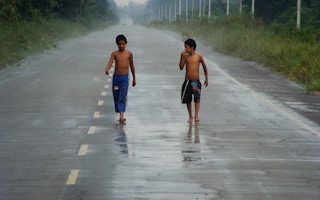The Amazon rainforest, so vital to the world’s climate welfare, is said by environmental groups and scientists to be under severe attack from the Brazilian government, which is removing many safeguards to prevent deforestation.
The first shock was the cuts announced by President Michel Temer to the already limited budget of the environment ministry.
These will “profoundly prejudice the monitoring of deforestation, and consequently, Brazil’s climate targets”, says Alfredo Sirkis, executive secretary of the FBMC, the National Climate Change Forum, a hybrid body set up in 2000 to bring together government planners and representatives of civil society to inform environmental legislation and raise public awareness.
Government cuts have been imposed on many ministries in order to reduce a growing deficit. Some will lose up to 30 per cent of their budgets, but the environment ministry has been targeted for the biggest cut of all, losing a total of 53 per cent from treasury funding and parliamentary allocations.
Urgent need
This is at a time when the need for environmental monitoring is more urgent than ever, according to green groups. Preliminary data from Brazil’s National Space Research Institute, INPE, shows that the Amazon region saw a 29 per cent increase in forest clearance last year.
The environment ministry’s enforcement agency, IBAMA (the Brazilian Institute of Environment and Renewable Natural Resources), relies on teams of inspectors on the ground to monitor not only the vast Amazon region, but all the other biomes that make up Brazil.
These drastic spending cuts will weaken its capacity to carry out inspections, warns the Climate Observatory, an environment group.
As well as investigating and stopping illegal logging and burning operations over vast areas of forest, the ministry’s budget is spent on protecting 326 federal conservation units, which cover 76 million hectares, licensing infrastructure projects, and feeding thousands of animals saved from hunters, poachers and dam construction in rescue centres.
While the ministry is being starved of the cash it needs to carry out its constitutional duties, the powerful landowners’ lobby in congress is pushing for a total relaxation of the environmental laws.
Claiming the need to speed up the present lengthy process, they want the licensing process devolved to local authorities or even to the construction companies themselves.
Critics warn that this could lead to local authorities competing to attract mining and other environmentally damaging projects by offering licensing-free deals.
If the rural producers’ lobby get their way, it would mean that road-building – known to be the main driver of deforestation – could go ahead with no regard for the environmental consequences.
This could include the paving of controversial roadways such as the BR-319 (connecting the Amazon capital Manaus with the town of Porto Velho) and the BR-163 (connecting the Mato Grosso capital of Cuiabá with the Amazon river port of Santarém), both of which run through some of the most preserved areas of the Amazon rainforest. At the moment these roads are virtually impassable during the rainy season.
Once paved, thousands of lorries will use them to carry the soy harvest north to river ports for shipping to Europe and the US.
Brazil climate targets
In a hard-hitting document, the Climate Observatory warns that the government and its parliamentary allies are promoting what may be the wors`t anti-environmental offensive since the 1980s. It states: “This puts at risk Brazil’s climate targets, besides the security of our entire society.”
Among the reversals of recent months, it lists the reduction in the size of several conservation units in the Amazon, the threat to indigenous reserves by the choice of a blatantly anti-indigenous Minister of Justice, Osmar Serraglio – who even questioned the Indians’ need for land – the privatisation of public lands and the end of environmental licensing.
The report concludes that Brazil risks rolling back its achievements of the last two decades in fighting deforestation, recognising indigenous lands and creating conservation units, and returning to the 1980s when it was viewed as “an international pariah” because of the accelerating clearing of the Amazon rainforest.
It says: “The country, which likes to sell itself to the world as part of the solution of the climate crisis, has become a problem again.”
This story was published with permission from Climate News Network.










